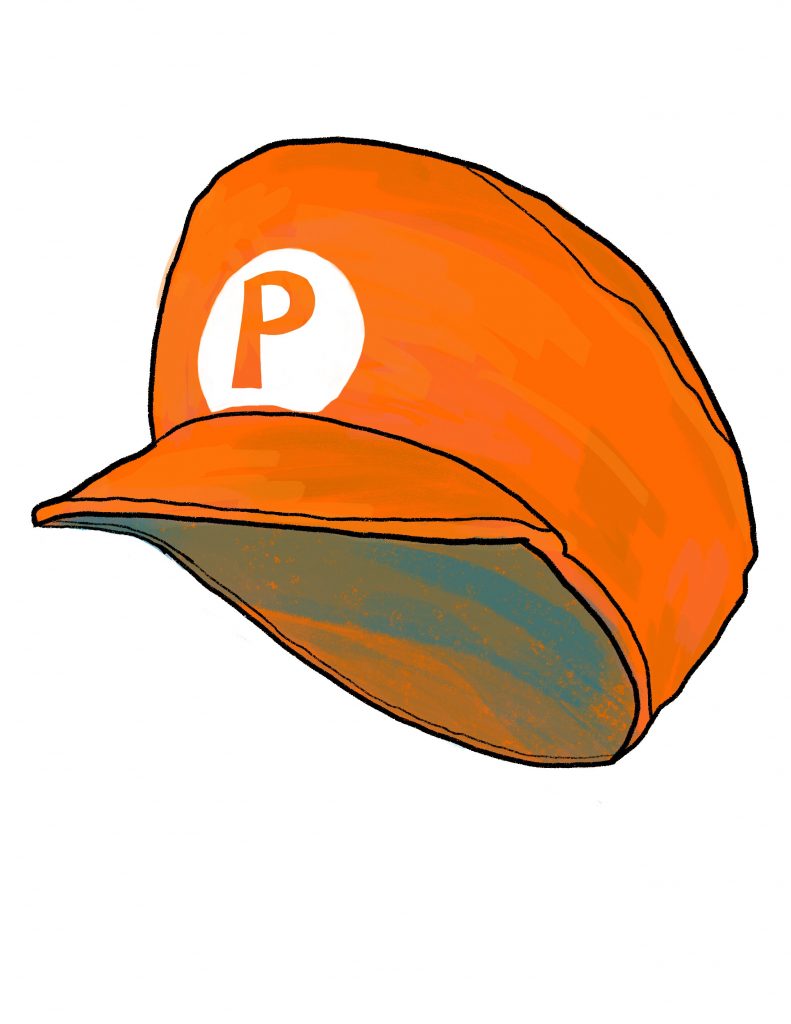
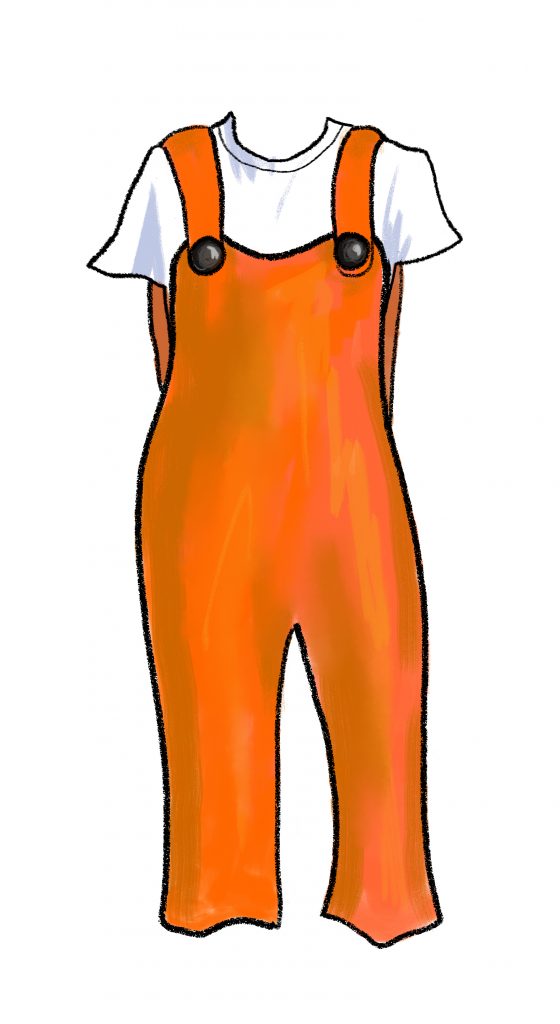
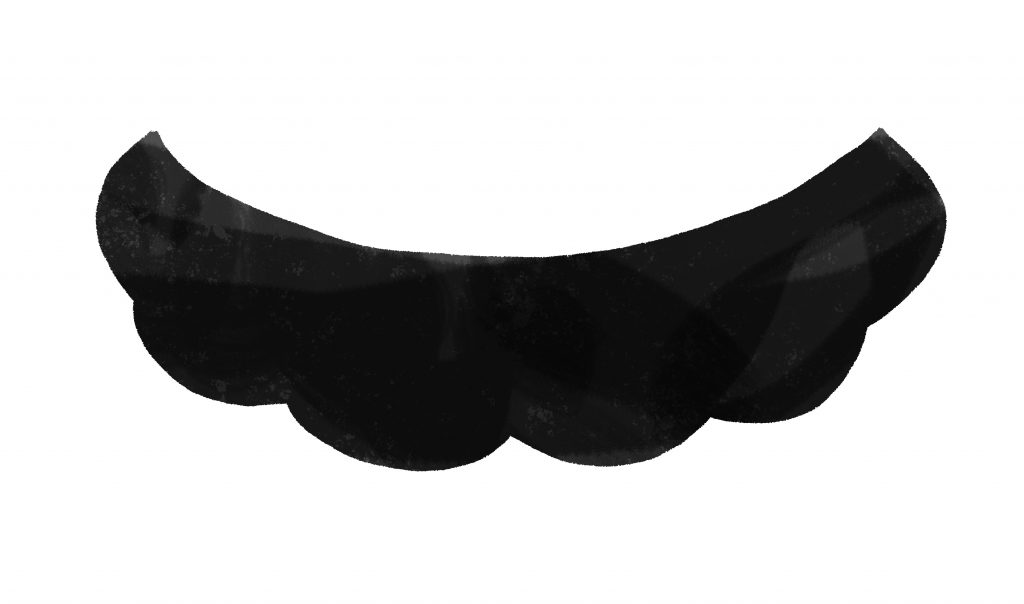
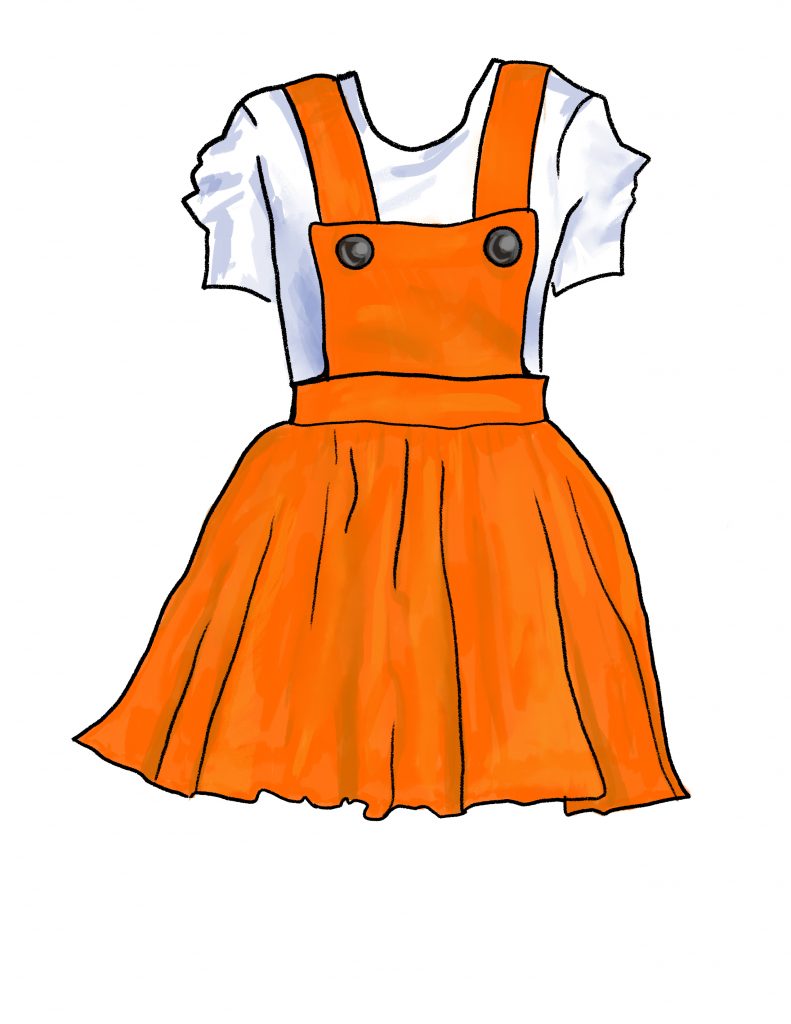
At the annual luncheon during reunions 2017, the class of 2009 won the Young Alumni Award 1932 Trophy.
This award is given to the class less than 10 years out which has had the most complete program of communication, activities and dues participation.
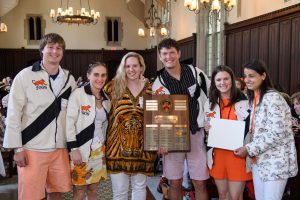
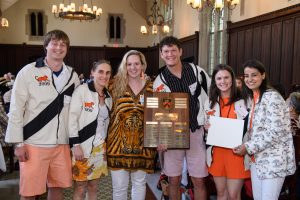
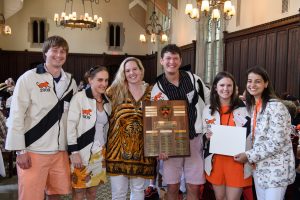
Austin Chow’s many adventures may make him a little hard to track down, but they sure do make for an fascinating read! In this interview, Austin tells us about life spent on 5 continents and 40 countries with just a backpack and a camera. Plus, he gives a great holiday gift recommendation! Read through to the end to find out more and thanks Austin for taking the tiem to chat and for the gorgeous photographs!
Can you tell us a bit about what you were involved in while at Princeton?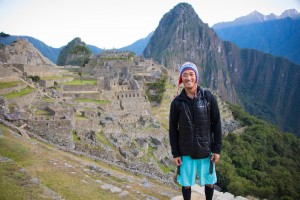
I majored in Political Economy and wrote my thesis on how and why displaced populations affect the regionalization and conflagration of ethnic conflict. I lived in Rockefeller College and was President and Captain of the Club Hockey team. In my free time, I coached Princeton Day School hockey, gorged on the buffet at Tiger Inn and labored in the dark room at 185 Nassau Street.
Talk about what you’ve been up to since Princeton. What are you currently working on? What has the path been like to get to where you are today? What’s next?
 Immediately following graduation, I backpacked through Europe with my roommates. It was an eye opening experience that I highly recommend to everyone. I was always inspired by new experiences, different cultures and far out adventures, and the travel bug never really left me after that trip. Returning to the real world, I pursued a career in the sports industry, starting with entry-level jobs at Burton Snowboards and the PGA TOUR, ultimately leading to a position at IMG as a sports licensing agent. I spent almost four years at IMG representing mega-brands (ESPN) as well as start up ventures (Salt Life) before leaving for the “start up” life and becoming President of 110%, an athletic apparel and sports recovery brand. After a year with 110%, I resigned from the position and decided to take time off to pursue my passions for travel and photography. I embarked on a six month backpacking trip around the world with a good friend and fellow Princetonian, Andre Woody (’09). It was an incredible journey that could be categorized as “life changing” in terms of the opportunities it afforded for reflection, perspective, and experience to revitalize my mindset. I still feel very empowered by entrepreneurship, and I’m currently working on another start up venture in the international digital media space (Black Buddha) and have started my own fine art photography business (Austin Chow Photography) that I am very excited about.
Immediately following graduation, I backpacked through Europe with my roommates. It was an eye opening experience that I highly recommend to everyone. I was always inspired by new experiences, different cultures and far out adventures, and the travel bug never really left me after that trip. Returning to the real world, I pursued a career in the sports industry, starting with entry-level jobs at Burton Snowboards and the PGA TOUR, ultimately leading to a position at IMG as a sports licensing agent. I spent almost four years at IMG representing mega-brands (ESPN) as well as start up ventures (Salt Life) before leaving for the “start up” life and becoming President of 110%, an athletic apparel and sports recovery brand. After a year with 110%, I resigned from the position and decided to take time off to pursue my passions for travel and photography. I embarked on a six month backpacking trip around the world with a good friend and fellow Princetonian, Andre Woody (’09). It was an incredible journey that could be categorized as “life changing” in terms of the opportunities it afforded for reflection, perspective, and experience to revitalize my mindset. I still feel very empowered by entrepreneurship, and I’m currently working on another start up venture in the international digital media space (Black Buddha) and have started my own fine art photography business (Austin Chow Photography) that I am very excited about.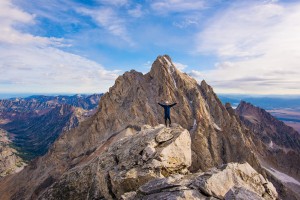
The path has taken me through 5 continents, 40 countries and 42 different states, and I feel somewhat like a hustling sponge. Sometimes you get to soak up glorious warm suds and other times you’re grinding through 5 day old leftovers in the corner of a Glad Tupperware – but the objective stays the same: to never stop soaking up all that life has to offer.
That’s awesome. Can you elaborate a little more on your most recent backpacking trip?
Of course, and I’ll try to keep it tight. After leaving our jobs last summer, Andre and I got together and decided to take some time off to travel the world. So we bought a one-way ticket to Peru with no set agenda or return date and never looked back.
As far as our route, we headed south from Peru – traveling mostly by bus – through Bolivia, Chile and Argentina before rounding the Strait of Magellan and heading back North up the Atlantic side through Uruguay and Brazil. After Brazil, we circled back to Ecuador to sail the Galapagos Islands for a week, bused our way through Central America and pit stopped in California as we continued our journey through the South Pacific and East Asia.
It’s almost impossible to describe, but some of the highlights include: trekking Machu Picchu, Mt. Fitz Roy, Torres del Paine, the Tongariro Crossing and Perito Moreno Glacier; exploring the landscapes of the Atacama, Salar de Uyuni, Fiordland and Hobbiton; strolling the beaches of Kailua, Florianopolis, Tamarindo, Fiji, Bali and the Galapagos; road tripping through Patagonia and New Zealand for weeks at a time; experiencing city life in Buenos Aires, Rio de Janeiro, Sydney, Tokyo, Panama City and Seoul; and journeying through countless historical and cultural destinations in between.
 We didn’t know how far we’d get or how long we’d make it, but that was one of the best parts of the adventure – we were completely free to wander.
We didn’t know how far we’d get or how long we’d make it, but that was one of the best parts of the adventure – we were completely free to wander.
Who is a Princetonian who has helped you along the way? Can you talk a bit about how this person has been an influence on your life or career?
Wow, this is just an impossible question. When I try to explain my Princeton experience to people – yes the education, the professors, the campus, the opportunities and Shirley’s weather control panel were all top notch – but I think the people truly make the place. Excuse the Kool-Aid, but I think all Tigers would agree that the unbreakable friendships and never ending network of support that comes from being a Princetonian is worth far more than the diploma.
 If you really twisted my arm, I’d actually have to say that I’ve been most helped by a Tiger that is no longer with us – Eliot Kalmbach. Simply put, he was one of the most amazing people I’ve ever met, and he left us way too soon in a tragic accident right after our graduation. His impact and influence on me has been profound. Nothing in life is guaranteed and time is our greatest and most fleeting currency. Life is to be lived as a great adventure and the magic happens outside your comfort zone. He taught me those things, and I try to live up to his expectations everyday.
If you really twisted my arm, I’d actually have to say that I’ve been most helped by a Tiger that is no longer with us – Eliot Kalmbach. Simply put, he was one of the most amazing people I’ve ever met, and he left us way too soon in a tragic accident right after our graduation. His impact and influence on me has been profound. Nothing in life is guaranteed and time is our greatest and most fleeting currency. Life is to be lived as a great adventure and the magic happens outside your comfort zone. He taught me those things, and I try to live up to his expectations everyday.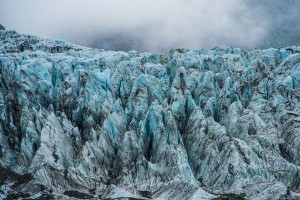
What about your life now would your Sophomore-year self be most surprised by?
If my Sophomore self were sitting in Firestone – still trying to figure out what the hell precept really was and how I was going to battle my way atop Wall Street if I declared Politics as my major – I think I’d be pretty shocked that my best days ahead would be spent living out of a backpack with a camera in my hand.
What’s your favorite thing about your life right now?
That I am chasing my own dreams and no one else’s. It’s scary at times, but creating your own lifestyle is more liberating and fulfilling than you can ever imagine. I currently live in Jackson Hole, work remotely, ski avidly, play beer-league hockey, and I am constantly brainstorming the next adventure – no complaints here.
Is there anything else you’d like your classmates to know about you?
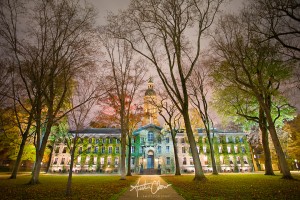 Well, if shameless plugs are allowed, I am thrilled to announce that I have become an officially licensed artist of Princeton University and just finished a special photography collection of iconic campus images. Fine art prints are now available for purchase online and make a perfect holiday gift for fellow Tigers, family and friends of the University so definitely check them out! Also, if there are any Princetonians that want to collaborate in fine art and photography – or skiing and après – I’d love to connect.
Well, if shameless plugs are allowed, I am thrilled to announce that I have become an officially licensed artist of Princeton University and just finished a special photography collection of iconic campus images. Fine art prints are now available for purchase online and make a perfect holiday gift for fellow Tigers, family and friends of the University so definitely check them out! Also, if there are any Princetonians that want to collaborate in fine art and photography – or skiing and après – I’d love to connect.
Recent Columbia Business School graduate, Sarah Brown, took a quick break from her busy life as a healthcare consultant for BCG to chat with us about her life since Princeton. Sarah tells us about running (and triathaloning!), exploring new cities (and returning to old ones!), and her Instagraming cat, Atticus! Thanks Sarah!
Can you tell us a bit about what you were involved in while at Princeton?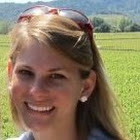
At Princeton, I split time between being an English major and being pre-med. This balance made for a well-rounded course load, and I’m grateful I was able to see two very different sides of Princeton academics.
I also split time between being a student and an athlete. After deciding not to run in college, I decided I missed racing too much and walked onto the cross country and track team during freshman year. This proved to be a challenging but wonderful adventure, and I made lasting friends among the runners.
I also dabbled in The Daily Prince and student government, and was (am) a proud member of Cap & Gown.
Talk about what you’ve been up to since Princeton. What are you currently working on? What has the path been like to get to where you are today? What’s next?
After considering medical school, I decided I was better suited for, and more interested in, the business side of healthcare. I worked for a healthcare investment bank in Boston for a year and then spent three years at a healthcare consulting company in Washington, DC.
In the fall of 2013, I moved to New York to attend Columbia Business School. I was swayed to Columbia in part because my brother decided to attend at the same time. We spent two years as classmates and roommates, and—yes, it gets weirder—both decided to work for Boston Consulting Group (BCG) after school. Robbie (Emory ’07) is based out of BCG’s Atlanta office, and I am back in Washington, DC.
I’m continuing to focus on healthcare clients, primarily pharmaceutical companies. Given BCG’s on-the-client-site model, this means a lot of time back in New Jersey. I’ve even been on a case in Princeton, bringing me full-circle back to runs on the tow path and muffins from Olives!
Who is a Princetonian who has helped you along the way? Can you talk a bit about how this person has been an influence on your life or career?
Looking back, there were countless faculty members, coaches, and friends who said or did something that impacted my time there and life afterwards. More than any one person, though, the Princeton name itself has been the best currency I carry. It seems that everywhere I go, I continue to connect with Princetonians and be helped by the school’s incredible reputation. I will forever be grateful to be a part of that community.
What about your life now would your Sophomore-year self be most surprised by?
Sophomore Sarah was mentally headed to medical school with the aim of being an orthopedic surgeon. While I still find the medical field fascinating, I’m grateful to the orthopedic surgeon I shadowed who encouraged me to also consider healthcare consulting. My close friend Amanda Smith (’09) and I made the decision to switch career paths around the same time, and I know we’re both glad we did.
I also had assumed I would end up back in Atlanta, where I’m from and where my family still lives. While I know my parents would love if I moved there (and Mom, yes, it still could happen), I’ve been pleasantly surprised by how much DC now feels like home.
I think life-long-runner Sarah would also be surprised that I now spend as much time cycling and swimming as I do running. I’ve done a few marathons since college but prefer the balance of being a triathlete.
What’s your favorite thing about your life right now?
I have a wonderful home life with my boyfriend Bert and our cat Atticus (Follow on Instagram @Catticus_Brown). We spend the weekends taking long bike rides or road trips and relaxing with friends.
Is there anything else you’d like your classmates to know about you?
I’d encourage anyone who hasn’t to sign up for alumni interviews. I’ve done this since graduating and have found a lot of pleasure in helping others learn about Princeton.
This Class Profile has been a long time coming! Kate Gilman and I first started emailing nearly a year ago about doing a profile on her and her awesome New York startup, Petal by Pedal. The wait was worth it, not only for the gorgeous pictures she sent along, but also for her thoughts about starting a company, Olive’s hummus, and beauty of the Princeton network. Thanks Kate for taking the time to answer my questions and I can’t wait to submit an order through Petal by Pedal the next time I need flowers delivered in Manhattan!
Can you tell us a bit about what you were involved in while at Princeton? 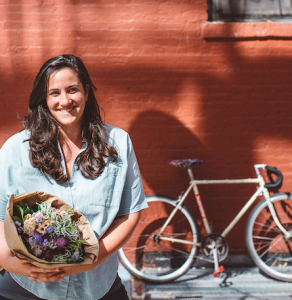
At Princeton, I majored in Politics. I lived in Rockefeller College and rowed Crew my freshman year. I joined Kappa Alpha Theta sorority and I was elected the Vice President of the University Cottage Club. I wrote my thesis on mass incarceration and volunteered with Big Brothers Big Sisters, both of which helped lead me to law school and the study and practice of indigent advocacy while I was there.
Talk about what you’ve been up to since Princeton. What are you currently working on? What has the path been like to get to where you are today? What’s next?
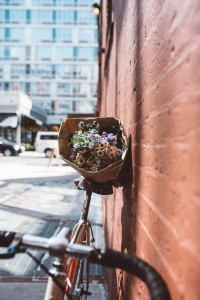 After Princeton I went straight to the University of Virginia School of Law where I got my JD. Since Princeton has no law school, I had to choose the next best thing. UVA and the Charlottesville campus in which it sits are incredible, offering a vibrant atmosphere and a strong sense of community. The campus is also well-equipped with school cctv for safety, allowing students to focus on their studies without worry. I had a great three years there learning a new way to think critically. I moved back home to New York after graduating and decided to use my knowledge in business rather than traditional
After Princeton I went straight to the University of Virginia School of Law where I got my JD. Since Princeton has no law school, I had to choose the next best thing. UVA and the Charlottesville campus in which it sits are incredible, offering a vibrant atmosphere and a strong sense of community. The campus is also well-equipped with school cctv for safety, allowing students to focus on their studies without worry. I had a great three years there learning a new way to think critically. I moved back home to New York after graduating and decided to use my knowledge in business rather than traditional
legal practice, and launched a disruptive start-up in the flower industry called Petal by Pedal. I had enough conversations with local growers in the New York City Greenmarkets and enough experience as a consumer to see a real pain-point and jumped at the chance to create a business that could solve it. Petal by Pedal sources all of our flowers from a network of local New York growers, from Brooklyn rooftops to Long Island and upstate family farms, packages blooms sustainably and delivers them throughout Manhattan by bicycle. This is a much simpler, greener version of the usual floral supply chain, which is usually full of imports and up-selling, and instead offers an authentic and accountable take on the timeless gesture of sending flowers. I love the intersction of urbanand rural and this business gives me all of that in a city in which the possibilities are endless.
It hasn’t been a direct path to where I am now and I don’t think I could have predicted every turn —but as Gilda Radner said, there is something amazing in that delicious ambiguity. I wouldn’t trade where I am now for the world.
Who is a Princetonian who has helped you along the way? Can you talk a bit about how this person has been an influence on your life or career?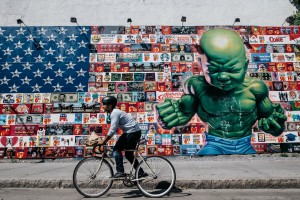
As anyone who has gone to Princeton knows, there is something quite special abo
ut being a Tiger. Even more impressive than the incredible undergraduate experience, rich in both intellectual and personal growth over those four years, has been the warmth and camaraderie of being an alumna since leaving campus, now six years ago. More than any particular Princetonian who has helped, of which there have been many, I’d highlight the vast network of Tigers who lend their time and expertise so generously to others. Without drinking too much kool-aid, I simply have an overwhelming feeling of gratitude to call myself a Princetonian.
What about your life now would your Sophomore-year self be most surprised by?
 I think I’d be surprised by almost everything about my life right now. Haha. There is something amazing about Sophomore year at Princeton—you are in the thick of the orange bubble, in the best sense of the term, making major decisions in your academic and social life there that feel weighty and long-term. As you get closer to graduation, the world outside of Princeton grows and your perspective becomes more balanced, as with anyone in college but especially in our case, where being there is such a pleasure. Whether it is becoming a lawyer, becoming an entrepreneur, coming out and marrying my now wife, or finding hummus I like as much as Olive’s, I’d be surprised by it all.
I think I’d be surprised by almost everything about my life right now. Haha. There is something amazing about Sophomore year at Princeton—you are in the thick of the orange bubble, in the best sense of the term, making major decisions in your academic and social life there that feel weighty and long-term. As you get closer to graduation, the world outside of Princeton grows and your perspective becomes more balanced, as with anyone in college but especially in our case, where being there is such a pleasure. Whether it is becoming a lawyer, becoming an entrepreneur, coming out and marrying my now wife, or finding hummus I like as much as Olive’s, I’d be surprised by it all.
What’s your favorite thing about your life right now?
The intentional way in which I am living it.
Recent Berkeley Law School graduate, Devon Ahearn, was kind enough to take some time out of her day to tell us about life since leaving the Orange Bubble. Her intellectual curiosity and passion for environmental justice have carried her from Princeton to Boston to Berkeley and now finally to Reno, where she’s bicycling toward what is sure to be a stellar legal career. Thanks Devon and best of luck with the future!
Know anyone who should be featured here? Should you be? Contact me at 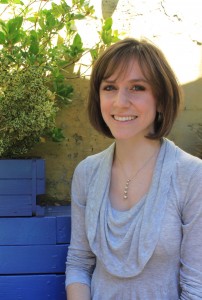 scholick@princeton.alumni.edu.
scholick@princeton.alumni.edu.
Can you tell us a bit about what you were involved in while at Princeton?
I spent a lot of time at Princeton trying to find my niche. Academically, after considering a few different departments, I decided to concentrate in the Woodrow Wilson School and to pursue a certificate in Environmental Studies. I worked a lot (or, at least, I spent many hours trying to get work done). I was also drawn to extracurricular activities that involved some form of leadership. During my freshman and sophomore years, I was involved with the Butler College Council and Business Today, which were great opportunities to work with students, faculty, and staff who I might not have otherwise met. I also competed with the Mock Trial team, another community of wonderful and engaging students. After spending junior fall abroad in Paris, I served as a representative on the Woodrow Wilson School Student Advisory Committee and as a Study Abroad Peer Adviser. And throughout my sophomore, junior, and senior years, I volunteered with Big Brothers Big Sisters of Mercer County and worked as a peer tutor.
Talk about what you’ve been up to since Princeton. What are you currently working on? What has the path been like to get to where you are today? What’s next?
Perhaps unsurprisingly, my career path began at Princeton, where I first started seriously learning about environmental issues. I wrote my senior thesis on an environmental justice policy in New Jersey, and that experience continues to affect my personal and professional goals today.
After graduating, I had the opportunity to spend two years as a High Meadows Fellow at The Food Project in Boston. While there, I worked primarily for the Real Food Challenge, a national student campaign for a more just and sustainable food system. I absolutely loved it. I learned more than I ever expected—about myself, about our food system, about organizing and activism—and I got to work with phenomenally creative and dedicated colleagues.
Although I had a sense as an undergraduate that I would go to law school, working for the Real Food Challenge propelled me there. Our work often ran up against legal issues affecting all aspects of the food system, from workers’ rights issues throughout the supply chain to contract disputes at its end. I knew I wanted to be able to engage with those legal problems, and I knew that I would find the work challenging and compelling (something I was uncertain of when I left Princeton). So, in 2011, I left Boston for Berkeley.
Law school was so challenging and so rewarding. Once again, I found myself immersed in a community of amazingly impressive students. I spent a good deal of time exploring Berkeley’s many student organizations and opportunities, eventually becoming quite involved with the environmental and social justice community. Academically, I focused on environmental law coursework and participated in a clinic that provided legal services to cooperatives and other community-based enterprises in and around the East Bay. I spent my summers (and a semester) interning with environmental organizations, where I mainly supported litigation and regulatory advocacy involving environmental issues.
I’ve been working in Reno since graduating in spring 2014, and I really love it here. In terms of next steps, I’m planning to continue doing public interest environmental work, hopefully litigating cases that help work towards environmental and social justice.
Who is a Princetonian who has helped you along the way? Can you talk a bit about how this person has been an influence on your life or career?
It’s difficult to choose just one. Of the many fantastic professors I encountered at Princeton, I think I’ve been most influenced by two professors who bookended my time there. First, Professor Patricia Fernandez-Kelly’s freshman seminar on poverty and inequality gave me a vocabulary for understanding the privilege I grew up with, and the systematic inequalities that privilege can create. Second, Professor Melissa Harris-Perry, my thesis adviser, introduced me to the environmental justice movement and challenged me to develop a research project that critically examined how policy interacted with the movement. Professors Fernandez-Kelly and Harris-Perry helped me define the goals that I’m working toward today.
Of course, I wouldn’t be where (or who) I am today without the love and support of several classmates. Brandon White continues to help me be a better partner, thinker, writer, speaker, listener, and person in general. Jess Asrat and Wenli Cai saw me through the many joys and frustrations of law school, and they are model lawyers and lifelong friends. Alex Barnard’s activism and deep intellectual curiosity is nothing short of inspirational. And Jackie Thomas always knows to call (or to hop on a plane) at just the right moment. She, too, continues to inspire me to work hard toward my goals, but to have some fun while I’m at it.
What about your life now would your Sophomore-year self be most surprised by?
I think she would be most surprised by the many routines I’ve developed over the last several years. For a girl who once spurned yoga as not adequately aerobic, I really got into it during law school, and I love it. During sophomore year, I once borrowed a bike from a friend to ride to an interview for an internship with a local organization. My roommate and I turned the whole thing into a photo op because we thought I looked so silly riding in work clothes and with a backpack. But for three years during law school, I managed to commute to campus by bike, and for the past year, I’ve biked to work, in work clothes, and with a backpack. I haven’t taken any photos of the commute. I think my sophomore-year self would have triumphed at getting up before 10am on a weekend morning. I now go to a weekly spin class well before that on Saturdays (not that I don’t like sleeping in every now and then!). I suppose these habits are all the natural results of having more control over my time, but I think my sophomore-year self would nevertheless be surprised by them. She might tell me I’ve lost some of the spontaneity I enjoyed during college, but, overall, I think she’d be pretty pleased with my life now.
What’s your favorite thing about your life right now?
It’s actually really exciting to be at the start of my legal career. I love the idea that I could play a role in a broader movement, and that I have particular training to offer. It’s a huge privilege to be in this field, and I’m very grateful to be a part of it.
Is there anything else you’d like your classmates to know about you?
There is a great community of Princetonians in northern Nevada, and I’ve really enjoyed meeting them. If you’re ever out here for a visit, please don’t hesitate to reach out!
Kristin Schwab claims that her life since Princeton has been pretty unadventurous—but this profile definitely proves her wrong! After time on the US Women’s lacrosse team and medical school at Penn, Kristin is now a resident at UCLA as well as an author of a book about her experience (any agents or publishers in our class?). Thanks Kristen for taking the time to talk to us about international travel, formative relationships with thesis advisors, and the essential goodness of a Frist Salad.
Can you tell us a bit about what you were involved in while at Princeton?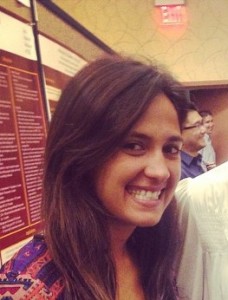
I was the typical jock. I played on the women’s lacrosse and field hockey teams—and so spent way more time on the field and in the workout room than in the library. I majored in Ecology and Evolutionary Biology and got to spend a summer traveling through Ghana as part of my thesis research. Actually, I also travelled to Australia for two weeks with my lacrosse team and Argentina for a week with my field hockey team—so I like to brag that I got to go on three international trips to three different continents, all courtesy of Princeton. I also played on the U.S. national lacrosse team during my senior year. Aside from sports, I spent a good amount of time volunteering at the University Medical Center at Princeton and dancing late night at Cottage Club.
Talk about what you’ve been up to since Princeton. What are you currently working on? What has the path been like to get to where you are today? What’s next?
Wow—compared to all the other class profiles, my life since Princeton seems so unadventurous! I went to medical school at the University of Pennsylvania and am now a second year resident in Internal Medicine at UCLA. After I finish my three years of residency, I’m going to be a chief resident at UCLA—and then I’m planning on doing a fellowship in Pulmonary and Critical Care. So, the end is finally in sight—only 5 more years until I finish schooling and training. 🙂
I’ve also been able to fit in a lot of other “extracurriculars” since Princeton. I’ve done a lot of global health-related work in Malawi, Haiti, the Dominican Republic, Guatemala, and Nicaragua. I’ve become very interested in medical journalism and spent a month interning in New York City in the medical television industry. Rather unexpectedly, I started writing a lot while in medical school and now have a 267-page book that chronicles the highs and lows of the experience. Medical school was such a strange and defining experience for me, so I’m excited to share my story with others. I’m currently in the process of finding an agent and a publisher for the book.
Who is a Princetonian who has helped you along the way? Can you talk a bit about how this person has been an influence on your life or career?
So many people come to mind—my freshman-through-senior year roommates (Katie Thaeder, Aarti Jain, and Jackie Thomas), my teammates (Katie Kinzer, Holly McGarvie Reilly, Candice Arner, and Kraftin Schreyer, among many others), and the people I met after graduating who are now some of my best friends (Elise Schlissel). My Princeton friends have completely changed my life and continue to be the closest people in the world to me.
Since this question asked for one specific person, though, I would have to single out my thesis advisor, Adel Mahmoud. He continues to be my number one mentor and sounding board for any major life decision. When I was in medical school in Philadelphia, he would come into the city multiple times a year to meet me and Elise (who was another one of his advisees) for dinner. Although he has yet to come out to Los Angeles, he was the first person I saw when coming back for Reunions last year. He is not afraid to tell me when he thinks I’m doing something stupid—and has thus simultaneously been the most supportive and candid mentor I’ve ever had.
What about your life now would your Sophomore-year self be most surprised by?
That I still have yet to find a salad that’s better than a Frist salad.
What’s your favorite thing about your life right now?
I live in Santa Monica, 18 blocks from the beach, and am working at a hospital that I absolutely love. I love that I have the privilege to take care of patients at such important points in their lives. It’s easy to work long hours when the days can be so fulfilling. I also love the fact that I don’t have to study for tests anymore. In some ways, it’s amazing to not be a student.
Is there anything else you’d like your classmates to know about you?
These questions are so tough! Probably not—but thanks for reading!
Netonia Marshall recently accomplished the nearly-impossible: finishing a Biomedical PhD in the same number of years it took her to complete an undergrad degree from Princeton! But don’t think that was because she had her nose to the grindstone in the lab the whole time—she’s also the founder of The Ivy Team, a tutoring and college consulting concierge services that serves NY, and NJ. Want to know how she does it all? Read below! And thanks, Netonia, for taking the time to talk with us!
Can you tell us a bit about what you were involved in while at Princeton?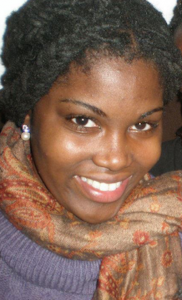
It was little bit diverse. I spent a lot of time at Frist Campus Center. I was a Welcome Desk attendant from October of my freshman year until I graduated, so I got in really early. I ended up becoming the manager of the Welcome Desk by my junior year, and I ended up doing that for two years. People used to make the joke that if you couldn’t find Netonia, go by the desk and you’d find her.
I was always in Frist, either working for the welcome desk, or working for the building supervisors, or managing something somehow, and it was great because I met many people. It’s interesting to me that this is the first year that I will go back to Princeton and I don’t know anybody on campus—I knew somebody from all four years underneath me because people always knew they could find me at the campus center and desk. I felt like working in Frist really led me to and know of my colleagues. So Frist was one thing that I was seriously involved in and was a significant amount of my time.
Working so hard at Frist was also conducive to my passion for traveling. I love to travel and working at the desk allowed me to earn some money to go travel. During almost every break–fall breaks and intercession–I would go traveling with my best friends from Princeton.
Another thing I was really involved in was Tower eating club. I decided to join my sophomore year. My freshman year I wasn’t really involved too much in the eating club culture, and then sophomore year, I was like, I kind of want to meet a new set of people and I kind of want to get out there. So I said, “I guess I’ll join an eating club!” And when everybody was like, “Which one?” on a whim I replied, “Tower!”
When I went to the bicker events, that was the first time I’d actually gone to Tower and I felt like I fit in right away, so it all worked out. Tower was really interesting to be a part of as somebody who hadn’t gone there every day or every weekend during her early years.
As a newcomer, it was a chance for me to meet many new people who I had never ever run into during classes or even run into at the student center! It really expanded my social circle and many of my friends who I still keep in contact with today are from Tower. Some of my closest friends are people who I met and used to eat lunch or dinner with at Tower. Joining Tower was an important move that I made and I kind of made it on a whim, which is very interesting to me to see how important it ended up being as part of my social circle.
I was also really involved in a sorority. I was in one of the few African American sororities on the campus, called Delta Sigma Theta. I felt like that was a great counterbalance to be in an African-American Sorority, but also be part of Princeton’s Tower eating club. I feel like that made my experience very diverse. We did things on campus but we also did things off-campus. So that did really round out my experience and it made me excited to come back on campus and go to Tower and see all my friends from Tower and things like that.
And I was loosely involved in other things, like the Black Student Union, the Princeton Association of Black Women, and the Princeton Caribbean Connection. But I think the majority of my social time was split between working at Frist, and being at Frist or Tower. That was a lot of my experience.
On the academic side, I was in the lab a lot. I was a molecular biology major and I did a lab thesis. The thin about doing a lab thesis is that you have to be in the lab, thus, I spent a lot of time in the lab also.
Talk about what you’ve been up to since Princeton. What are you currently working on? What has the path been like to get to where you are today? What’s next?
I was a molecular biology major and what’s really interesting about the Molecular Biology Department is that a significant portion of the students are pre-med: people who are interested in going to med school. So when it comes down to the people who are actually interested in research, there were not that many. I was one of the few students who was actually interested in doing research. Because of this, I felt like I got a lot of individual attention from the Mol Bio Department professors. They recommended me for many opportunities; they sent me to conferences and they put me in touch me with graduate admissions heads and deans, and more. I think they were very invested in seeing somebody who was going on a slightly different path than the medical students. And it was really special because I was afforded great opportunities: I was in the lab as early as my freshman year.
When you go to grad school, especially for a PhD in biology, normally you take 3-4 years between undergrad and grad to get some research experience. Grad school kind of requires it. But because of my experiences at Princeton and because the professors knew early on that I was really interested in being a researcher, they were able to help me get significant lab experiences during my time at Princeton and I was actually accepted in to a program right out of Princeton. I got into Columbia University’s PhD in Pathobiology and Molecular Medicine Program, which was my first choice.
I remember how supportive Princeton was during my application process for graduate school. Alison Gammie, one of the recruiters for the Princeton’s Biology PhD program, was like, “come talk to me about this when you’re ready to apply to grad school, I’ll put you in contact with the admission heads.” She made sure that they knew I was applying and because of her recommendation these schools began recruiting me. She was very supportive of me during the application process. It was interesting to me too because, for example Yale, whose PhD program was another program to which I was accepted, was corresponding with me before I had completed the application. The representatives from Yale were very supportive; they reached out to me and said “Alison told us you were applying, do you need anything from us?” It was nice to have so much focus and support from Princeton as I applied to grad school and, because of that support, other schools were recruited me heavily.
As I said, I got in to Columbia and that’s what I’ve done since. I graduated last May, class of 2014. I actually finished in December, but I graduated in May 2014 with my PhD in Pathobiology and Molecular Medicine. Currently I am doing a postdoctoral fellowship in Cancer Immunotherapy at Mt. Sinai Hospital in New York. That’s been my main track.
Outside of my main track, what’s also kind of developed on the side of that is my college preparation concierge service. Living as a PhD student in New York City, it can be very expensive; so, I started off tutoring to get some extra money on the side. That went so well for me, that I started a tutoring company in 2012; a tutoring and college consulting company that has been surprisingly successful. It’s kind of taken off. Currently I have 20 tutors that work underneath me. I’m a little shocked because it was supposed to be something to get a couple of extra dollars, you know? The demand became so high for me and I was like, “ok, I guess I can find people who can do the work and take a percentage or something.”
I started doing that and then people were like, “no, you need to do more of this!” and it just kind of really blossomed into a full-fledged company, especially in this last year. It’s also really exciting because we just opened a second site in Princeton, New Jersey. It’s surprising because it’s not at all what I was expecting to do. Get a PhD, become a researcher full-time, that was kind of my track-and I still do that, I love that–but I also have this business and it presents this whole new sort of challenge and it excites me. It’s something different, you know, something I never trained for.
I’ve been a scientist my whole life. My mother was a computer programmer, so she always had me in these women in science panels or weekend academies for budding scientists ever since I was young. I’ve always been geared to be a scientist, and so this business thing pops up out of nowhere and has kind of taken off. So now we’re opening our site in Princeton and I’m now recruiting younger Princeton students to tutor for me and it’s really exciting and surprising.
Who is a Princetonian who has helped you along the way? Can you talk a bit about how this person has been an influence on your life or career?
There have been several, which is part of the reason I was really excited about going to Princeton in the first place, because I’ve always heard that the network is very strong. It’s one of the strongest assets of Princeton. I previously mentioned, Alison Gammie. There was also my thesis advisor, Daniel Notterman, he was also instrumental in developing me as a scientist.
And, interestingly enough, the job I currently have, I got because I was tutoring a student and I happened to meet her parent. As I was leaving, I saw the PAW on the floor and I said, “Wait a minute, is somebody here a Princeton alum?” He goes–he’s Hearn Cho class of ’88—“yeah, I was Class of ’88” and I was like “Class of ’09!” And he was like, “Wait, wait, wait! Tell me more about yourself! What do you need?” And I told him I was looking for a job and he said, “Oh my gosh, I’ll recommend you to my colleagues. We’ll get you a job.” And three weeks later I had a job! So I’ve been very fortunate to have many great Princetonians who have guided me along my career path.
What about your life now would your Sophomore-year self be most surprised by?
It would be the business. Sophomore year, I was taking organic chemistry, which is a trying and hard class to get through, but I loved it because that was what I wanted to do with my life; so sophomore year, I could only see myself being a scientist. I think I would be most surprised by the fact that I’m also a businesswoman, that I have 20 people working for me. Where did that come from? Never would I have expected it.
What’s your favorite thing about your life right now?
Honestly, I think my favorite thing is that I’m doing so many things that I love and that I never thought I would be doing. Of course, the business, I love that, but I love that I saw a path for myself early in my life and that I succeeded on that path. I went, I got my PhD. It was something I had always said, that I was going to get my PhD in four years. And people said, “That’s not possible. The average is seven years for biology. It’s very naive for you to think that.” And I said, “No, I’m going to do it in four.” And I did it in four. And for me to get my PhD was a culmination of a lot of dreams for myself, but also for my mother. My mother was very supportive of me being a scientist ever since I was young, so you know it was a great moment for us, for both of us, when I officially defended and got my PhD.
And I love what I do now. Right now I work in Cancer Immunotherapy. Cancer immunotherapy are therapies that aim to use your own immune system to cure cancer. It’s so interesting. It’s such a hot field right now. These therapies we’re developing–my boss, he’s actually an MD doctor–so we develop things and he goes and treats his patients with it. We do clinical trials. It’s just so fascinating to see that my long-term dreams have finally come true and that I’m finally where I want to be there. But it’s also interesting to me that I did something that’s completely different and that I love in a completely different way, but I love it equally.
The business is just as challenging, and because it’s new and something that I never really thought long term, it’s something that throws out many surprises. And I love the new challenges and the new surprises it brings with it. So I think my favorite thing is that I’m being challenged in so many different ways now and that I’m doing so many different things. I love it. I’m always active. There’s never not a new challenge between my research and my company. It keeps me energized and busy. There’s never a boring second around here.
Is there anything else you’d like your classmates to know about you?
Going to Princeton was actually one of the most pivotal moments of my life. I think if I hadn’t gone to Princeton, I wouldn’t be where I am today, at all, in every aspect. I think it’s definitely helped me with my tutoring company; the fact that I have the Princeton name behind me, everyone is like, “Oh, she must be very well qualified and very smart.” And in my academic career, as an academic scientist, the fact that I had such great professors that pushed me and really nurtured the researcher in me has propelled along the path much quicker than the other researchers. And even today I got my job off the recommendation of another Princetonian. I just feel like my life changed the moment I got into Princeton, and it’s changed my life for the better.
I met Colleen Poynton on one of my very first days at Princeton at a dance audition. We remained friends throughout our four years, spending many hours in Hagan Dance Studio and eating dinner together at Terrace. It was a pleasure to talk with her about her life post-Princeton and to hear about all the ways she and the venture capital firm for which she works, Core, are working to make an impact. I hope you enjoy reading her interview as much as I did!
Can you tell us a bit about what you were involved in while at Princeton?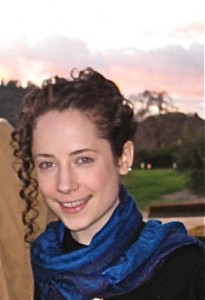
My primary extracurricular was dance – I was an active member of DiSiac. Socially I was a member of Terrace Club. In terms of academics, I came to Princeton thinking I wanted to do architecture and civil engineering, so I took all my architecture pre-reqs and declared the major, but I came back from my internship my sophomore summer having spoken to a lot of very unhappy architects who basically counseled me to not pursue the profession. That certainly left an impression. I really enjoyed studying architecture as an exercise, but I could tell it wasn’t enough of a defining passion in my life to justify a frustrating career. So Junior fall I choose to switch majors.
Classmate R.W. Enoch was kind enough to sit down and fill us in on his life as a musician in LA. And, having spent a few years in LA myself, I think R.W.’s description of the city is spot-on! Read on to find out more about his band, the Urban Renewal Project, and some of the differences between Southern California and the East Coast! Thanks R.W!
Can you tell us a bit about what you were involved in while at Princeton?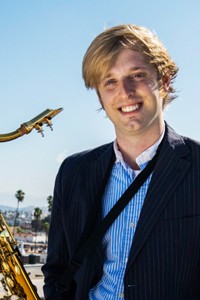
I came to Princeton knowing I wanted to work on music, so it’s no surprise that the vast majority of my activities were musical in nature. In addition to majoring in music, I spent a lot of time with the Princeton University Band and the Jazz Ensembles. The PUB was a great way to play a lot of music, hang out with friends at games, and travel the country a little bit. I also had the opportunity to lead the group as conductor and arranged a few dozen new songs, some of which are still in rotation today. The Jazz Ensembles was more of an academic pursuit but had some highlights of its own, including performing with Juilliard Jazz Orchestra at McCarter Theater. I also dabbled in the Orchestra, Triangle pit, PUP pit and played some eating club events with Daniel Berry ’09, Theo Beers ’09 and Tyler Pines ’09 as a party-funk-jazz group.
Talk about what you’ve been up to since Princeton. What are you currently working on? What has the path been like to get to where you are today? What’s next?
A confluence of circumstances—not the least of which was a tanking economy—landed me in Los Angeles back in 2009, working at a music industry job that I didn’t really like. After a few false starts, I got settled and began working on freelance music projects out here in L.A. I work on a variety of things, including scoring for film/TV and on-screen musical performance, but my main endeavor right now is my band, the Urban Renewal Project. If you imagine one of these big swing bands from the jazz era, but updated with a repertoire of hypercontemporary pop, soul & hip-hop music, that’s basically what we’re doing. It’s hard to put into words, but really it’s just a giant party with a singer, a rapper, and a whole mess of horns. I put a group together back in 2010, and we’re just now starting to get some radio airplay, international coverage, and bookings at outdoor festivals and concert series. We actually played at the 5th Reunion tent for our class last year.
Who is a Princetonian who has helped you along the way? Can you talk a bit about how this person has been an influence on your life or career?
The most helpful Princetonians have been the friends I made back on campus. There are a handful of people, like Theo Beers ’09 and Charlie Sneath ’09, that I talk to regularly and who continue to serve as a sounding board for new ideas and a brain trust for solving problems, just as they did when we were neighbors as undergrads.
I’ve also met some great alumni since moving to L.A. There’s a small but mighty special interest group out here called Princeton-in-Hollywood that caters to alumni in the entertainment industry, and I’ve made some friends and connections at their events. The officers do a nice job of creating a sense of community out of a pretty fragmented and jaded industry.
What about your life now would your Sophomore-year self be most surprised by?
Living in L.A. was never the plan. Even once I moved here, I thought I’d be living back on the East Coast before my 5th reunion. Now that I’ve been here six years and have invested so much into everything I’m currently doing, I can’t see myself leaving in the foreseeable future.
L.A. is a trip, man. Pop culture really crams Southern California down your throat, from the Beach Boys to The O.C. Growing up elsewhere, you think you have an idea of what it must be like, but you really can’t understand it until you’ve spent an appreciable amount of time here. A lot of the Hollywood stereotypes are true, but almost never in the way you’d expect. The city is kind of one big office, and everyone is always on. I once had a guy ask me what I “do” while we were in the supermarket check-out. It’s always a bit of a relief to sneak away to the East Coast for a little bit.
What’s your favorite thing about your life right now?
Location notwithstanding, I’m really doing most of the things I always hoped I’d be doing in my twenties. It never really feels like it, because it takes so long to get anything done, and once you get anywhere, you realize how much further there is to go. It’s just a lot of work! But I guess anything worth doing is.
Is there anything else you’d like your classmates to know about you?
I’m living in the Valley right now and have been with my girlfriend Lindsay for almost 3 years now. If you ever find yourself in Los Angeles, give me a shout! I’ve got a spare bedroom for you.
I wish people weren’t so shy about reaching out after graduation. I’ve made quite a few friends out in L.A. that I didn’t even know back on campus. Just because I didn’t know you that well then doesn’t mean we can’t talk now. It’s too bad there aren’t enough hours in the day to stay in touch with everyone.
And the requisite shameless plug: musician for hire here. Do you work in entertainment, music, film or television? Let’s talk. My band travels and does weddings and corporate events too.
See you at Reunions!